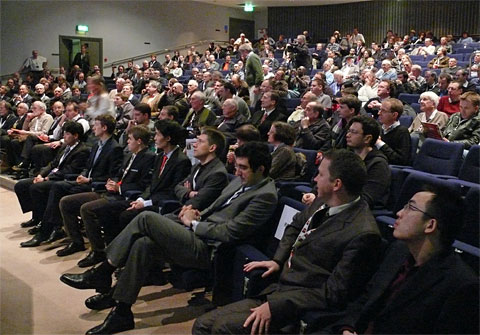My thanks to the kind folk at IVP for a review copy of Tim Stafford's Shaking the System: What I Learned from the Great American Reform Movements (and may I voice a special "hurray" to IVP at the moment - they must be doing something right to get this kind of criticism). I feel privileged to have Stephanie write a book review for Chrisendom as she is one of these extremely talented people - artist, writer, intellectual - yea, one of them. But try not to hold it against her too much, cos she is also a very dear friend of this Tilling household! So without further ado, let me hand over to her.
Shaking the System Review
Ordinary Activism
When writer Flannery O'Connor was asked whether she thought the Iowa Writers' Workshop discouraged young writers, she answered "Not enough of them." Tim Stafford's stance toward young would-be activists in his Shaking the System has something of the spirit of her remark, though his is a gentle voice. This book will not produce a new wave of gleaming-eyed idealists: It says too much about the realities of actual activist work, about the grind of the long haul, about failure, about glory that never happens.

I've been a gleaming-eyed idealist, and when I found that brightness and hope and Big Ideas had, roughly, zero impact on injustice, that in fact the work of changing the world is slow, often painful, slow, disheartening, and slow, my Big Ideas fizzled, and I began to dislike activism. If I couldn't make everything better now, if I couldn't, in fact, save the world, then why bother?
Stafford's answer is, because there is truth. This is where he begins: If you want to be an activist, make sure you are on the side of truth. Remember that truth often. His next chapter is on resistance: what to do when no one gives a shit about truth (he doesn't put it that way). Expect this, he says.
From there he moves to pressure tactics, which involve the ethical, responsible use of power. The term "institutional sin," he says, is confusing: "People, not institutions or systems, are sinners." And yet, there is "web that binds people to injustice. It is not enough to simply present the truth and change people's hearts, one by one. Activists must change laws, institutions, habits and customs, for these bind people's dark hearts together into a formidable fortress. Activists must shake the system." In the U. S. abolitionist movement, he goes on to argue, it was finally "only the carnage of the Civil War" that accomplished change. Triumphalism is entirely absent from this book, as is a sense of activists as Knights in Shining Armor battling the forces of darkness. Instead there is a longsuffering familiarity with sorrow and with failure, with good coming about through devastating violence.
There is also personal honesty; Stafford first won my trust when he listed his own roles as an activist, early in the book. The list includes spending four years in Africa with his wife, helping to start a magazine for young people; it also includes writing letters to Congress, and helping to preserve a green space near his home. Stafford is not Wilberforce, and this makes me trust him, because I am not Wilberforce either. But Stafford has avoided the trap into which I've often fallen, of refusing to take any action if I can't be Wilberforce. Stafford's book is Christian in arriving at truth by paradox. On one hand, he points out that activism is harder, slower, more daunting work than I'd been willing to admit; on the other, he points the way toward starting small, with the activist equivalent of loaves and fishes—of giving what I have.
Stephanie Gehring













